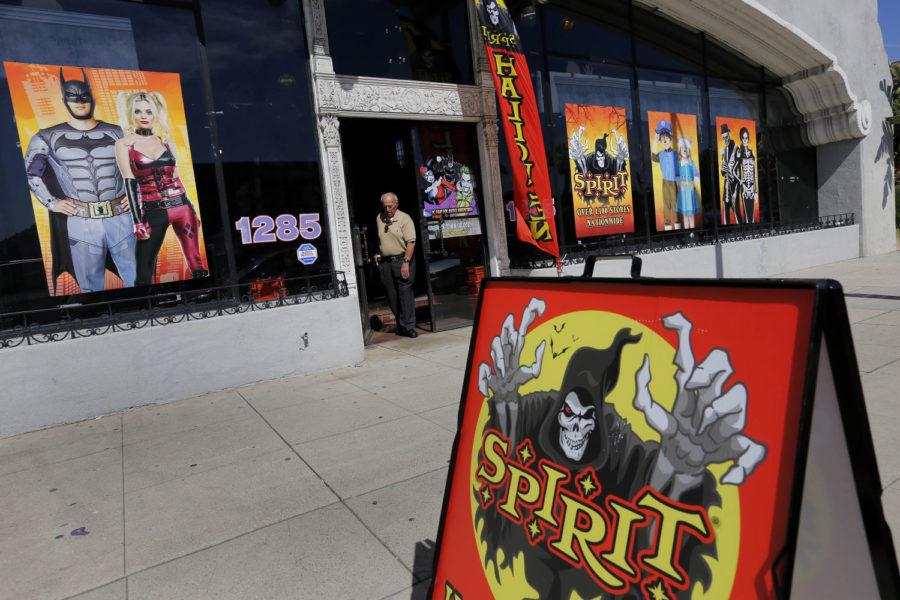Think before you pick your costume
Halloween is big business and few companies are more prepared for it than Spirit Halloween. The company has over 1,100 locations, including this one in Pasadena, Calif. (Michael Robinson Chavez/Los Angeles Times/TNS)
October 27, 2015
Halloween, although it is the perfect excuse to dress up as one’s favorite superhero or TV character, can get out of hand if not handled and thought about carefully.
It has become more apparent recently that dressing up as a Native American or any person of color can be offensive to the people actually living in that culture.
The idea that Halloween costumes can be racist and/or offensive has been a hot topic recently. Not only because Halloween is around the corner, but because people of color are starting to stand up and voice their concerns on these issues.
“I am not a costume” is a slogan that has started recently and has been used by many people, including Native Americans and Japanese-Americans. They are tired of having their culture being used on Halloween as a costume.
People of color would like to point out that even though sometimes one wears the costume as a form of celebration, especially on Halloween, it still comes off as offensive to them.
“Honestly I never thought it was that bad. I’ve always taken a costume as a costume, but I think as we go into our current social situation it’s different now,” said second-year math major Morgan Mitchell.
One has to think about if it would be OK for someone to wear one’s culture as a costume on Halloween. If the answer is no, then refrain from putting the questionable outfit on.
Recently, skull candy makeup has become a trend for women on Halloween night. This is an example of a tradition turned into a costume, without the implications in mind.
Latinos and Latinas dress up as skulls and skeletons on the Day of the Dead, usually on Nov. 1, to honor the souls of loved ones they have lost.
Traditions like these are only some of those which have been turned into costumes by Halloween costume-wearers who might not be as informed on the matter as others.
“I don’t think it’s OK for [non-Mexicans] to wear them, not even on Halloween or anything,” said transfer sociology major Adriana Hernandez-Ramirez. “There’s a lot of costumes; they can pick another one.”
This is why it is important to take an experience like this and turn it into a learning point. If some may take a costume offensively, let them take time to explain their reasons to those who are doing the offending.
“If people truly feel offended by it, I don’t think it’s right to continue to do it,” said Mitchell.
A now infamous incident from Penn State, where a sorority held a Mexican-themed Halloween party is still fresh in student’s minds. Mitchell also brought up the incident at UCLA where students held a Kanye West-themed party around Halloween, and dressed up in “ghetto rapper” costumes.
“If you go out to a party and you had no intention of offending somebody, then that’s one thing,” said Mitchell. “But if somebody explains how they are offended, don’t just shut it down, be open when you hear about it. Later, on next Halloween, you won’t do it again.”
The question remains whether or not it is ever OK to wear costumes like those of Pocahontas or Mulan on Halloween is acceptable. To students like senior film production major Taylor Lee, it might only be acceptable to wear a costume like that on Halloween.
“If it was Nov. 1, I would question it because I’d think, ‘why are you wearing that? are you making fun of them?’” said Lee.
While Halloween can be seen as a time to express oneself as whatever seems fitting, there seems to be a fine line between costume and insult.





























































































































